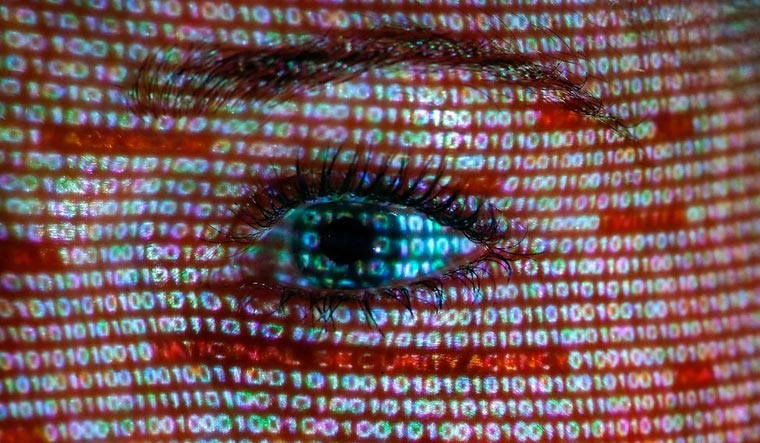With the Narendra Modi government empowering 10 Central agencies to intercept, monitor and decrypt all the data contained in any computer system in the country, the worst of Orwellian nightmares has come true for Indian citizens.
The order, passed late on Thursday night by the 'cyber and information security' division of the Union Home ministry under the authority of Home Secretary Rajiv Gauba, allows these Central probe and snoop agencies—including the Intelligence Bureau (IB), Narcotics Control Bureau, Enforcement Directorate (ED), the Central Board of Direct Taxes (CBDT), Directorate of Revenue Intelligence, Central Bureau of Investigation (CBI), National Investigation Agency (NIA), the Research and Analysis Wing (R&AW), Directorate of Signal Intelligence (in service areas of J-K, North East and Assam) and Delhi Police—to access any details on computers and digital gadgets of anyone residing in India.
The move has invited criticism from various quarters, including digital freedom activists and political parties, all hitting out against the Modi government for using legislation to snoop on its own citizens. The agencies have been empowered under the Information Technology Act for computer interception and analysis. The Central agencies have been authorised "for the purpose of interception, monitoring and decryption of any information generated, transmitted, received or stored in any computer resource under the said Act (section 69 of the IT Act, 2000)", the order states. Section 69 of the IT Act deals with the "power to issue directions for interception or monitoring or decryption of any information through any computer resource".
New Delhi-based digital rights organisation Internet Freedom Foundation said that the order by the Ministry of Home Affairs goes beyond tapping of phones. It challenged the order based on the Supreme Court's judgements regarding right to privacy in 2017 and Aadhaar this year.
"These rules (Information Technology (Procedure and safeguard for Monitoring and Collecting Traffic Data or Information) Rules, 2009) predate the 2017 Puttaswamy Right to Privacy judgement, which increases safeguards. Also thresholds for privacy invasion...The recognition of this is in the 2018 Aadhaar judgement, which NOW requires judicial oversight," Internet Freedom Foundation stated on Thursday.
4) PUCL standards + interception rules predate Privacy Judgement. We have much stricter standard which now requires fresh safeguards.
— Internet Freedom Foundation (IFF) (@internetfreedom) December 21, 2018
5) This is evident in the Aadhaar judgement in which J. Sikri requires judicial oversight to information sharing requests for Aadhaar data.
Meanwhile, the opposition parties came out in unison against the Modi government's move. "From Modi Sarkar to Stalker Sarkar, clearly the string of losses has left the BJP govt (sic) desperate for information," the Congress tweeted on Friday.
From Modi Sarkar to Stalker Sarkar, clearly the string of losses has left the BJP govt. desperate for information. https://t.co/1Q004d66bu
— Congress (@INCIndia) December 21, 2018
Taking a similar stand, Congress spokesperson Randeep Singh Surjewala wondered if the new snooping rule was the result of the BJP losing in the recently declared assembly election results. "Modi Govt mocks & flouts Fundamental ‘Right to Privacy’ with brazen impunity! Having lost elections,now Modi Govt wants to scan/snoop YOUR computers? ‘Big Brother Syndrome’ is truly embedded in NDA’s DNA!," tweeted Surjewala.
अबकी बार,निजता पर वार!
— Randeep Singh Surjewala (@rssurjewala) December 21, 2018
Modi Govt mocks & flouts Fundamental ‘Right to Privacy’ with brazen impunity!
Having lost elections,now Modi Govt wants to scan/snoop YOUR computers?
‘Big Brother Syndrome’ is truly embedded in NDA’s DNA!
जनता की जासूसी=मोदी सरकार की निन्दनीय प्रवृत्ति! pic.twitter.com/qCe1IocgY8
Trinamool Congress chief Mamata Banerjee, too, did not hide her anger. "If it is for National Security, then only for that purpose Central Government already has the machinery... Blanket surveillance is bad in law," she said.
CPI(M) General Secretary Sitaram Yechury said, "Why is every Indian being treated like a criminal? This order by a govt wanting to snoop on every citizen is unconstitutional and in breach of the telephone tapping guidelines, the Privacy Judgement and the Aadhaar judgement."
"It is extremely worrisome that an elected government tries again and again to snoop on its own people. What is Modi government trying to make as new India- a surveillance state?" wondered newly elected Rajasthan Chief Minister Ashok Gehlot.
It is extremely worrisome that an elected government tries again and again to snoop on its own people. What is Modi government trying to make as new India- a surveillance state? https://t.co/MVQaFBmD3J
— Ashok Gehlot (@ashokgehlot51) December 21, 2018
President of the All India Majlis-e-Ittehadul Muslimeen Asaduddin Owaisi utilised the opportunity to mock at the BJP's 'ghar ghar Modi campaign.
Modi has used a simple Government Order to permit our national agencies to snoop on our communications.
— Asaduddin Owaisi (@asadowaisi) December 20, 2018
Who knew that this is what they meant when they said ‘ghar ghar Modi’.
George Orwell’s Big Brother is here & welcome to 1984. pic.twitter.com/DrjQkdkBKh
According to an earlier order, the Union home secretary is also empowered to authorise or sanction the intelligence and security agencies for undertaking tapping and analysis of phone calls under the provisions of the Indian Telegraph Act.
(With PTI inputs)


